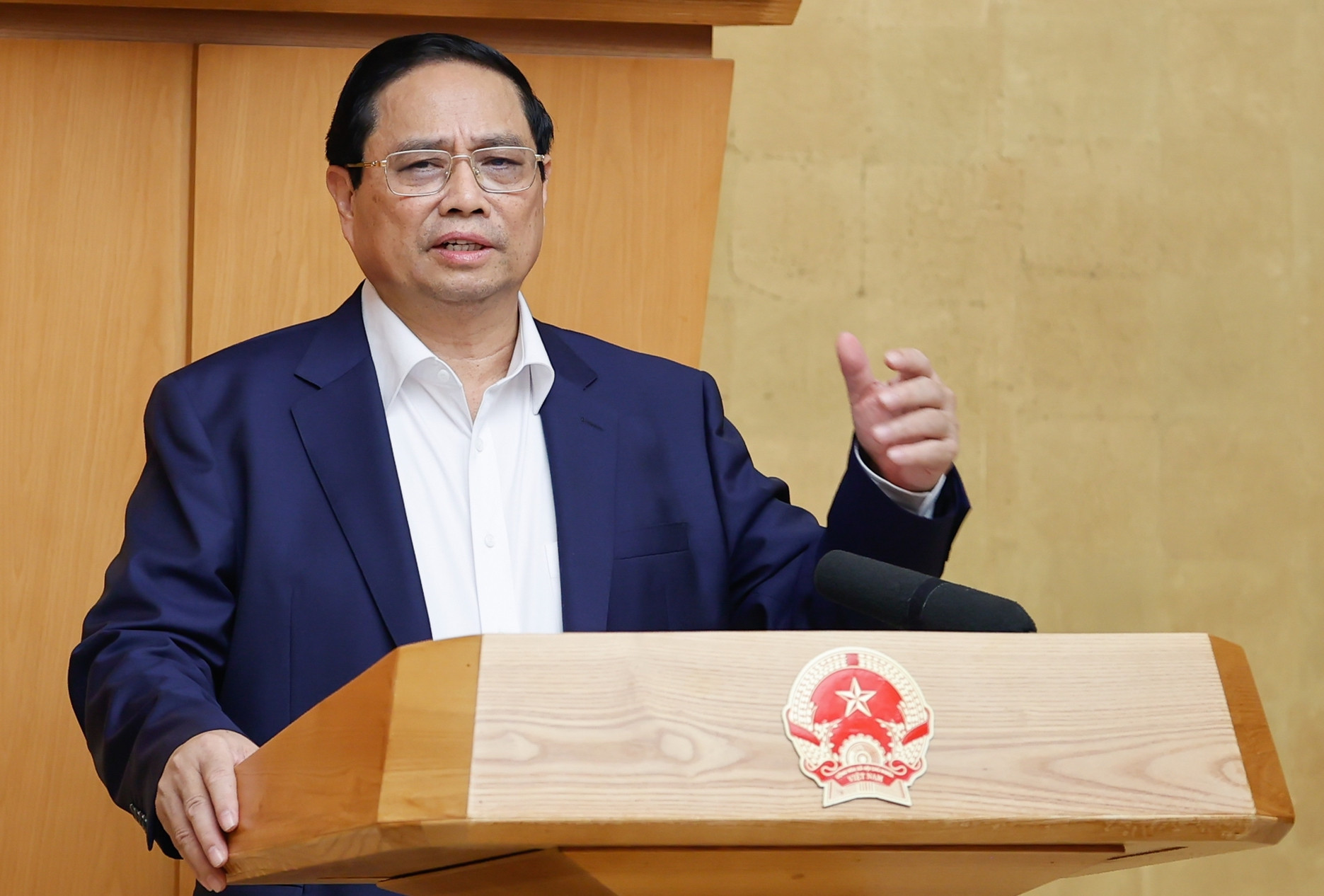Prime Minister Pham Minh Chinh has called for the reallocation of these funds to high-priority projects, emphasizing the need for swift action to support economic growth and stability.

Prime Minister Pham Minh Chinh has called for the swift allocation of the remaining 26.5 trillion VND ($1.1 billion) in public investment funds, urging a reallocation to projects with rapid disbursement needs and a requirement for additional funding by August 15.
On August 5, during the conclusion of the July monthly cabinet meeting, Prime Minister Pham Minh Chinh noted that the socio-economic situation continues to improve, with July's results surpassing those of June, and the overall performance for the first seven months of the year better than the same period in 2023 across most sectors.
Despite these achievements, the Prime Minister acknowledged ongoing socio-economic challenges, including high inflation pressures, particularly due to volatile crude oil and food prices, and the global financial, monetary, and real estate markets' risks.
Furthermore, the implementation of the 140 trillion VND credit package for social housing is progressing slowly, and 26.5 trillion VND in public investment capital remains unallocated.
Facing these challenges, the Prime Minister emphasized the guiding principle that each subsequent month must achieve higher results than the previous one, each quarter better than the last, with 2024's achievements surpassing those of 2023 in a more comprehensive manner.
Regarding tasks and solutions for the future, the Prime Minister instructed ministers, department heads, and local leaders to closely monitor the situation and implement the resolutions of the Party; conclusions and directives of the Party Central Committee, the Politburo, and the Secretariat; National Assembly resolutions; and the directives and management of the Government and the Prime Minister efficiently and effectively.
The Prime Minister demanded a focused and targeted approach, emphasizing completing one task before moving on to the next. He stressed clear delegation of responsibilities, with defined roles, deadlines, outputs, and effectiveness, while enhancing supervision, inspection, reward initiatives, and timely handling of violations.
The Prime Minister directed continued priority on promoting growth alongside maintaining macroeconomic stability, controlling inflation, and ensuring the major economic balances.
Regarding monetary policy, the State Bank of Vietnam focuses on stabilizing exchange rates and the foreign exchange market, increasing credit access, prioritizing key sectors, and aiming for an annual credit growth rate of about 15%, while continuing to reduce lending interest rates.
For fiscal policy, the Ministry of Finance strives to increase revenue, cut spending, and vigorously implement digital transformation, applying electronic invoices in revenue management, and drastically saving on regular expenses. It effectively implements policies on tax, fee, and charge extensions, exemptions, and reductions.
The Prime Minister also highlighted the need for coordinated solutions to control inflation according to set targets and carefully assess impacts and develop appropriate plans for adjusting state-managed service prices (education, health).
Particularly, there must be adequate supplies of electricity and petroleum to meet production and consumption demands in any situation.
The Prime Minister urged a focus on renewing traditional growth drivers and strongly promoting new growth drivers, studying large-scale, suitable, and feasible policy packages to support businesses and promote new growth drivers like semiconductor chips and AI.
Simultaneously, the Prime Minister called for more vigorous public investment capital disbursement and the three national target programs.
The Ministries of Transport, Industry and Trade, Planning and Investment, and Construction are tasked with accelerating the construction of critical national infrastructure projects (especially the 500kV Quang Trach - Pho Noi project, set to inaugurate during the 79th anniversary of the August Revolution and National Day, September 2), and the highway system (aiming to have about 3,000 km operational by 2025).
Particularly, the Prime Minister demanded the urgent allocation of the remaining 26.5 trillion VND in public investment funds. The Ministry of Planning and Investment must decisively transfer funds to rapidly disbursing projects requiring additional funds by August 15.
The head of government also emphasized enhancing institutional, legal, and administrative reform and promoting national digital transformation.
A comprehensive review and proposal for handling conflicting, overlapping, inadequate, or impractical mechanisms, policies, and legal regulations should be conducted for amendments and supplements; reporting to the Steering Committee for reviewing and resolving obstacles in the legal normative document system.
Additionally, it is crucial to resolve outstanding and prolonged issues, vigorously reform administrative procedures, improve the investment environment, and require ministries, sectors, and localities to develop Digital Transformation Proposals linked to Proposal 06 within August.
Reports at the meeting indicated 13 outstanding socio-economic achievements in July and the first seven months of the year.
Specifically, macroeconomic stability continues, inflation is well-controlled, and major balances are ensured.
The average consumer price index (CPI) increased by 4.12% over seven months, rising 0.04% compared to June, amid basic wage increases.
Revenue collection increased significantly, with total state budget revenue for seven months estimated at 69.8% of the annual estimate, up 14.6% compared to the same period (despite tax, fee, and charge exemptions and reductions amounting to 87.2 trillion VND).
Public debt, government debt, foreign debt, and budget deficits are controlled below regulatory limits.
In particular, pension, social insurance, preferential treatment for people with meritorious service, and social allowances have been timely and fully implemented according to the new wage regime from July 1.
The total cost of allowances and preferential payments for people with meritorious services to the revolution increased by more than 5.3 trillion VND.
In July, nearly 96% of households were assessed as having stable or higher incomes than the same period.
The implementation of wage policy reforms from July received consensus from the entire political system and the people nationwide.
Thu Hang